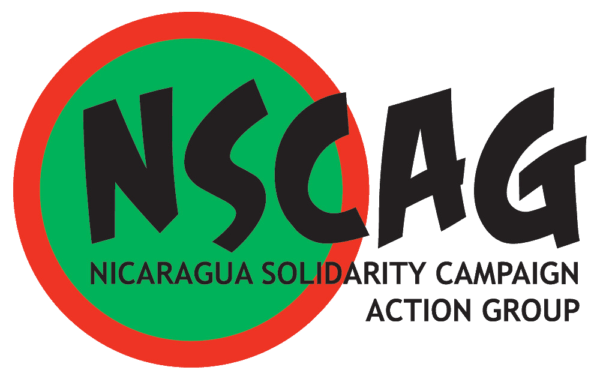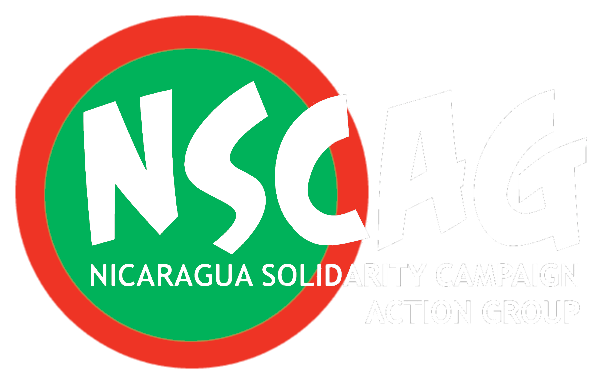Nicaragua Solidarity Campaign Action Group
17 June 2025
Nicaragua, free education for all: a right not a commodity
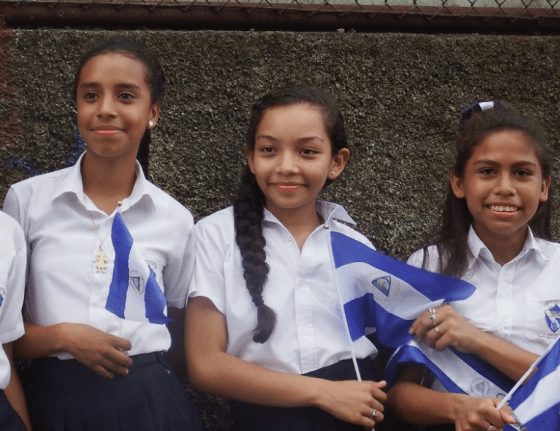
“Our concept of education is not just about process and exams. It’s about human development, social justice, values and respect for the environment.” Salvador Vanegas, Ministerial Adviser to the President on Education
1990 – 2006 State education the neo-liberal way
In 2025 Nicaraguan teachers’ union ANDEN celebrated its 46th anniversary and its unwavering commitment to education as a right not a commodity.
But it hasn’t always been this way.
During the neo-liberal period the country suffered a series of US-backed right- wing governments, when state education scarcely existed. In 2007 an estimated one million children were not in school with girls disproportionally affected. ANDEN faced mass layoffs and persecution.
Lack of funding meant the poorest families were forced to choose between food and sending their children to school. Those in school faced collapsing buildings with few or no desks or books.
2007 – Free high quality education for all
One of the first commitments made by President Ortega and the Sandinista government when they returned to power was free, high quality education throughout the country – from pre-school to university.
This has brought an evolutionary transformation of education, with opportunities expanded for everyone.
Education is seen as a human right rather than a privilege or a commodity, a key factor in poverty reduction and economic development.
Education transformed
At the start of the 2025 school year, a record 1.8 million children enrolled in state education, an astonishing figure in a country of 6.8 million. The school retention rate, only 69.5% in 2006 is 92.7% today.
Expenditure on education has risen year on year. New schools have been built and others remodelled, the number of teachers has doubled and training provided to ensure high quality education. MINED provides materials to support learning. Stationery, books and basic technology are available to students, parents and teachers at all levels, but particularly for early years and primary.
School gardens and free school meals
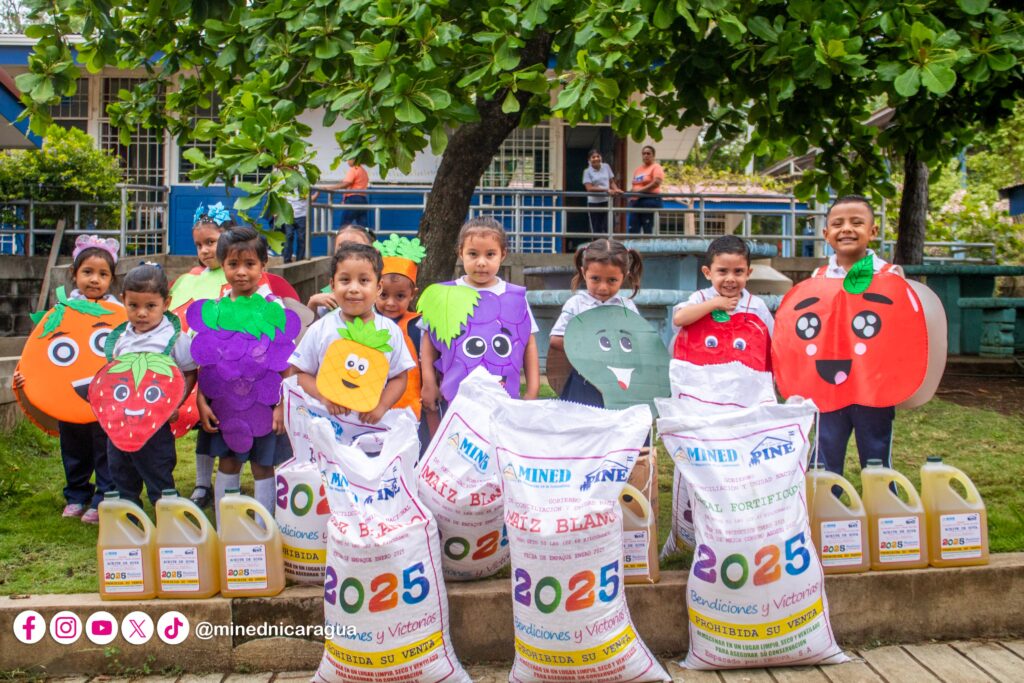
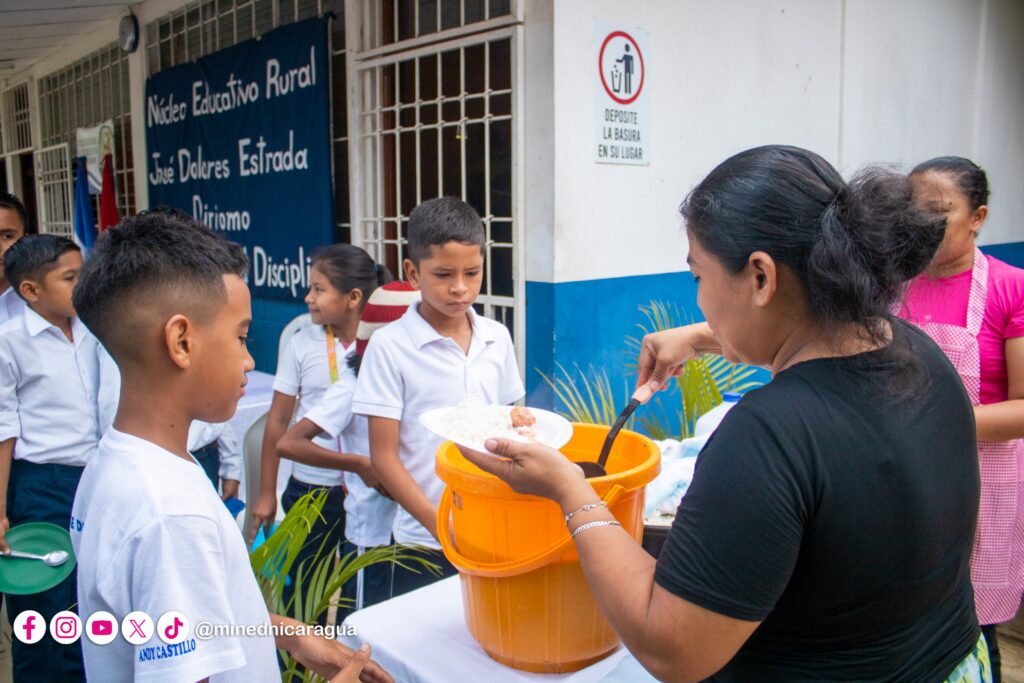
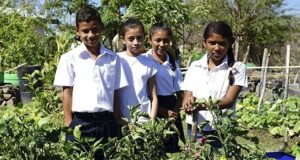
More than 1.2 million children receive free school meals, guaranteeing that no child goes hungry. This has contributed to a 68% drop in chronic malnutrition in school age children since 2007.
To complement school meals, the Ministry of Education (MINED) promotes school gardens. MINED provides maize, oil, rice and beans: these are supplemented with the vegetables from school gardens. The gardens are also a teaching resource for other subjects especially maths and literacy.
Arts, culture, sport and the environment are an important part of the school curriculum. A green schools programme involves reforestation campaigns while environmental education is based on sustainable use of natural resources. Students also benefit from a healthy schools programme which incorporates health care and disease prevention.
MINED has developed an integrated strategy to improve special needs education. Continued specialisation of teachers, adapted educational materials, improved school environments and permanent family support, combine to create successful learning outcomes for children.
Education in rural and indigenous and afro-descendant communities focuses on preserving their language, education, culture and way of life. In 2021, the first Indigenous Agricultural University in Latin America was inaugurated, located in the South Caribbean.
Nicaraguan teachers’ union ANDEN
“Teachers are valued in our society, they develop character, and human potential and enable children and young people to value themselves and the world around them.” Salvador Vanegas
Since 2007, ANDEN and other unions have played an important role in the social and economic life of the country. ANDEN is the largest education union, representing over 80% of the workforce.
ANDEN remains steadfast in its defence of state education and teachers’ rights, ensuring a future where education is a pillar of justice and equity. Members enjoy full collective bargaining rights, annual salary increases, good working conditions, continuous professional education, and employment stability.
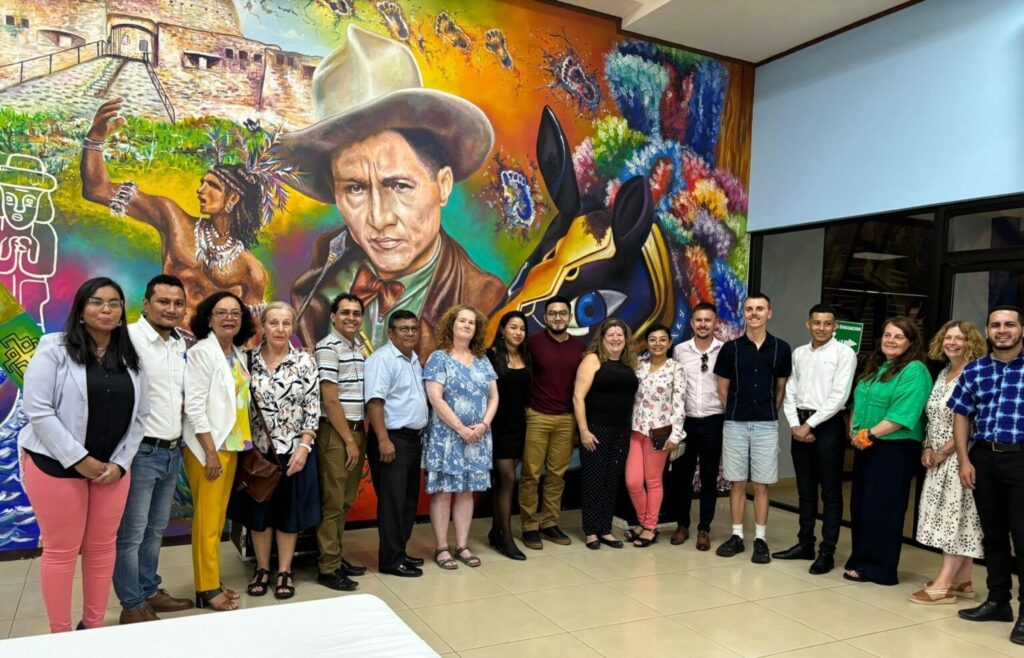
| “Education is the most powerful weapon which you can use to change the world.” Nelson Mandela, June 1990 |
